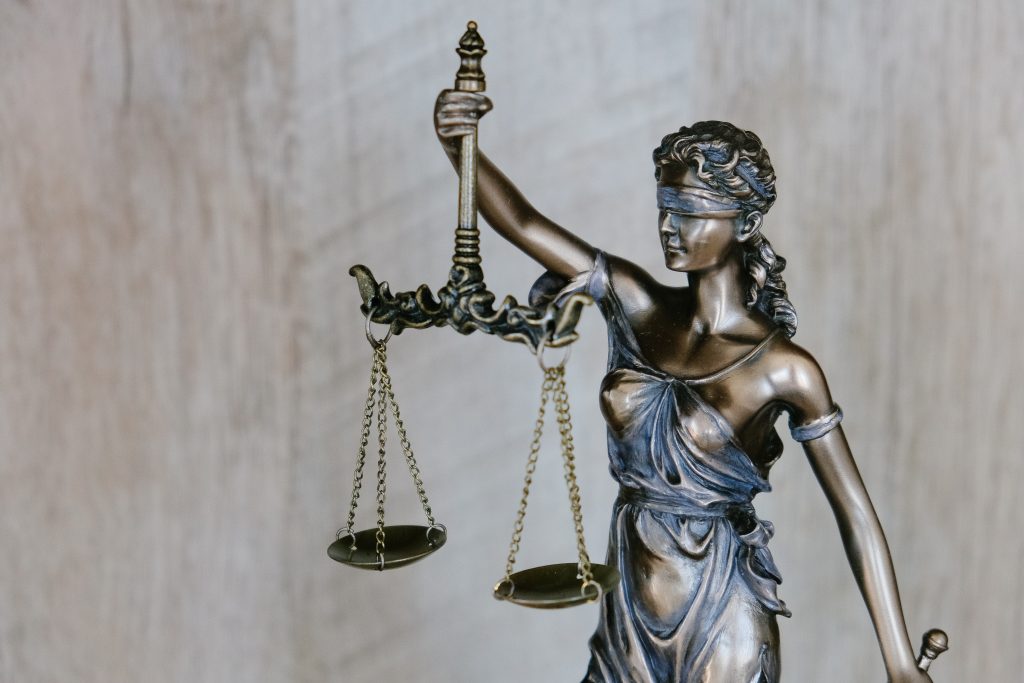Crafting compelling content for a criminal defense attorney’s website blog requires a deep understanding of the target audience—individuals facing criminal charges in Utah. By researching their needs and concerns, you can create informative posts that explain complex legal concepts in a clear and accessible manner. Showcase your expertise and experience through engaging case studies and real-life scenarios, instilling confidence and setting your firm apart. Address common legal concerns directly, providing reassurance and guidance. Incorporate personal stories to humanize your practice and create emotional connections. Optimize your content for search engines by conducting keyword research and incorporating keywords naturally. Every blog post should include a clear call-to-action, prompting potential clients to take the next step and seek assistance promptly. With the Criminal Defense Plea, you can effectively communicate your firm’s value, establish trust, and ultimately attract and convert more clients.

This image is property of images.unsplash.com.
Understanding Criminal Defense Plea
A criminal defense plea refers to the formal response a defendant provides in a criminal case. It is a statement of the defendant’s position regarding the charges brought against them. The plea can have a significant impact on the outcome of the case, potentially leading to acquittal, reduced charges, or negotiated sentencing.
Importance of Criminal Defense Plea
The criminal defense plea plays a crucial role in the legal process as it allows the defendant to assert their rights and present their defense strategy. It serves as the defendant’s opportunity to address the charges and argue their innocence or negotiate a favorable resolution. A well-prepared defense plea can potentially result in a reduction of charges or penalties, ensuring a fair and just outcome.
Types of Criminal Defense Pleas
There are several types of criminal defense pleas that a defendant can choose from, depending on their specific circumstances. These include:
-
Not Guilty Plea: By entering a not guilty plea, the defendant asserts their innocence and challenges the charges brought against them. This plea implies that the defendant believes the prosecution cannot prove their guilt beyond a reasonable doubt.
-
Guilty Plea: A guilty plea is an admission of responsibility for the charges. By entering a guilty plea, the defendant accepts their culpability and waives their right to a trial.
-
No Contest Plea: A no contest plea, also known as nolo contendere, is neither an admission nor a denial of guilt. Instead, it indicates that the defendant does not contest the charges but chooses not to admit guilt. This plea is often used when the defendant wants to avoid civil liability that may arise from a guilty plea.
-
Alford Plea: An Alford plea allows the defendant to maintain their innocence while acknowledging that the prosecution has sufficient evidence to convict them. This plea is useful when the defendant believes a jury may still find them guilty despite their innocence.
Preparing for a Criminal Defense Plea
Consulting with a Criminal Defense Attorney
One of the most crucial steps in preparing for a criminal defense plea is to consult with a skilled and experienced criminal defense attorney. An attorney specialized in criminal law will be familiar with the legal system, procedural requirements, and potential defense strategies. They can provide valuable guidance and representation throughout the process.
Gathering Evidence and Information
To mount a strong defense, it is essential to gather all relevant evidence and information pertaining to the case. This may include witness statements, surveillance footage, medical records, or expert opinions. The defense attorney will help identify and collect the necessary evidence to support the defense strategy.
Evaluating Plea Bargains
In some cases, the prosecution may offer a plea bargain as a means of resolving the case without going to trial. It is crucial to carefully evaluate any plea bargain offers and consider the potential benefits and disadvantages. An experienced criminal defense attorney can assist in negotiating favorable plea agreements, ensuring the best possible outcome for the defendant.

This image is property of images.unsplash.com.
The Process of a Criminal Defense Plea
Entering a Plea
Once the defendant and their attorney have prepared their defense, they will enter a plea in court. This usually occurs during the arraignment, where the defendant formally responds to the charges and declares their plea. The court will then proceed based on the defendant’s plea.
Negotiating with the Prosecution
After entering a plea, the defense attorney may engage in negotiations with the prosecution. These negotiations aim to reach a mutually agreeable resolution, such as reduced charges or penalties. Skilled defense attorneys can leverage their knowledge of the legal system and their understanding of the case to advocate for the best possible outcome for their clients.
Presenting Evidence and Argument
During the process of a criminal defense plea, the defense attorney has the opportunity to present evidence and arguments in support of the defendant’s innocence or in favor of a reduced sentence. This may involve cross-examining prosecution witnesses, presenting expert testimony, or highlighting flaws in the prosecution’s case. The defense attorney’s goal is to create reasonable doubt or obtain the most favorable outcome for their client.
Factors to Consider in a Criminal Defense Plea
Strength of Evidence
One crucial factor to consider when deciding on a criminal defense plea is the strength of the evidence against the defendant. Assessing the quality and credibility of the evidence can help determine the likelihood of success at trial. If the evidence is weak or insufficient, it may be advisable to proceed with a not guilty plea.
Potential Penalties
Understanding the potential penalties associated with the charges is crucial for making an informed decision regarding the defense plea. A thorough understanding of the consequences of different pleas can help the defendant and their attorney weigh the risks and benefits of each option.
Prior Criminal Record
The defendant’s prior criminal record is another important factor to consider. Whether the defendant has previous convictions or a clean record can affect the potential outcomes of a criminal defense plea. Previous offenses may lead to enhanced penalties, while a clean record may help in negotiating a more favorable resolution.

This image is property of images.unsplash.com.
Potential Outcomes of a Criminal Defense Plea
Acquittal
The most favorable outcome of a criminal defense plea is an acquittal. If the defense can prove the defendant’s innocence or create reasonable doubt in the minds of the jurors, the defendant will be cleared of all charges and considered not guilty. Acquittals can result in complete freedom for the defendant, preserving their rights and reputation.
Conviction with Reduced Charges
In cases where the evidence against the defendant is strong, it may be advisable to negotiate a plea deal with reduced charges. This can result in a lesser offense, potentially leading to lighter penalties. By accepting reduced charges, the defendant may avoid the risks and uncertainty of going to trial.
Conviction with Negotiated Sentencing
In some instances, a plea agreement may result in a conviction, but with negotiated sentencing. This means that the defendant accepts guilt for the charges but can advocate for specific penalties to be imposed. Negotiated sentencing can involve reducing jail time, probation, or alternative sentencing options such as community service or rehabilitation programs.
Benefits of Accepting a Plea Deal
Avoiding a Lengthy Trial
Accepting a plea deal can help the defendant avoid the time, stress, and expense associated with a lengthy trial. Trials can be unpredictable, and even with a strong defense, there is always the possibility of a less favorable outcome. By accepting a plea deal, the defendant can resolve the matter efficiently and move forward.
Reduced Penalties
One of the significant benefits of accepting a plea deal is the potential for reduced penalties. By negotiating with the prosecution, the defense attorney can secure a more favorable outcome in terms of sentencing. This can mean less jail time, lower fines, or alternative sentencing options that are more manageable for the defendant.
Certainty of Outcome
Another advantage of accepting a plea deal is the certainty of the outcome. By entering into an agreement with the prosecution, the defendant knows the specific charges they will face and the penalties that will be imposed. This clarity allows the defendant to plan for their future and make informed decisions about their next steps.
Downsides of Accepting a Plea Deal
Admitting Guilt
One significant downside of accepting a plea deal is that it requires the defendant to admit guilt for the charges. By agreeing to a plea deal, the defendant acknowledges their responsibility, which can have reputational and personal consequences. However, it is essential to weigh this against the potential risks and uncertainties of going to trial.
Limited Options for Appeal
Accepting a plea deal usually means waiving the right to appeal the conviction or sentence. Once the plea is entered and accepted, the defendant agrees to the terms of the agreement. This limited recourse can be a significant drawback if new evidence or legal issues come to light that could have affected the outcome at trial.
Negative Impact on Future Opportunities
A criminal conviction, even with a plea deal, can have long-term consequences for the defendant’s future opportunities. Background checks for employment, housing, or professional licenses may reveal the conviction, potentially affecting the defendant’s prospects. It is crucial to carefully consider the collateral consequences before accepting a plea deal.
Alternatives to Criminal Defense Pleas
Going to Trial
If the defendant is confident in their innocence or believes that they have a strong defense, they may choose to go to trial. Going to trial allows the defendant to contest the charges, present their defense, and potentially secure an acquittal. However, trials come with risks, and it is crucial to assess the strength of the defense case before opting for this alternative.
Exploring Diversion Programs
In some cases, a defendant may be eligible for diversion programs, which offer an alternative resolution to traditional criminal prosecution. These programs typically involve rehabilitation, counseling, or community service and aim to address the underlying issues that led to the offense. Successful completion of a diversion program can often lead to the dismissal of charges.
Seeking Dismissals or Reduced Charges
Another alternative to a criminal defense plea is to seek dismissals or reduced charges directly from the prosecution. This often requires compelling evidence or strong legal arguments that cast doubt on the case’s legitimacy. Skilled defense attorneys can advocate for their clients and negotiate with the prosecution for more favorable outcomes.
The Role of a Criminal Defense Attorney in a Plea
Negotiating with the Prosecution
A criminal defense attorney plays a vital role in negotiating with the prosecution on behalf of the defendant. They use their expertise and knowledge of the law to navigate the legal landscape, assess the strengths and weaknesses of the case, and advocate for the best possible outcome. Their negotiation skills are instrumental in securing plea deals and reduced charges.
Advising the Client
Throughout the criminal defense plea process, the defense attorney provides important legal advice to the client. They inform the client about the potential consequences of different pleas and the advantages and disadvantages of each option. By understanding the client’s goals and priorities, the attorney can guide them towards the most favorable decision.
Representing the Client in Court
During the plea process, the defense attorney represents the client in court, presenting their arguments, evidence, and objections to the prosecution’s case. They ensure that the defendant’s rights are protected and that their defense strategy is communicated effectively. The attorney’s courtroom skills and advocacy greatly impact the outcome of the plea process.
How to Choose a Criminal Defense Attorney for Your Plea
Experience in Criminal Defense
When selecting a criminal defense attorney for your plea, it is essential to consider their level of experience in criminal defense. Look for attorneys who specialize in criminal law and have a track record of successful defense strategies. Experience brings familiarity with the legal system, judges, and prosecution tactics, enabling the attorney to provide effective representation.
Knowledge of Local Laws and Practices
Criminal laws can vary significantly depending on the jurisdiction. It is crucial to choose an attorney who has in-depth knowledge of the local laws and practices governing the court where the case will be adjudicated. Local knowledge allows the attorney to anticipate challenges, tailor their defense strategy, and navigate the unique aspects of the jurisdiction.
Availability and Responsiveness
When facing criminal charges, time is often of the essence. It is important to choose an attorney who is available and responsive to your needs. A dedicated defense attorney will prioritize your case, answer your questions promptly, and provide reassurance and guidance throughout the plea process.
In conclusion, understanding the criminal defense plea process is essential for anyone facing criminal charges. By consulting with a criminal defense attorney, preparing a strong defense strategy, and carefully considering the options, defendants can navigate the legal system effectively and work towards the most favorable outcome possible. Choosing an experienced attorney ensures diligent representation and maximizes the chances of a successful defense plea.



